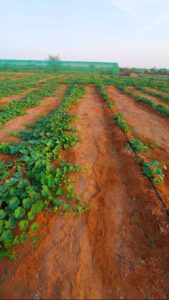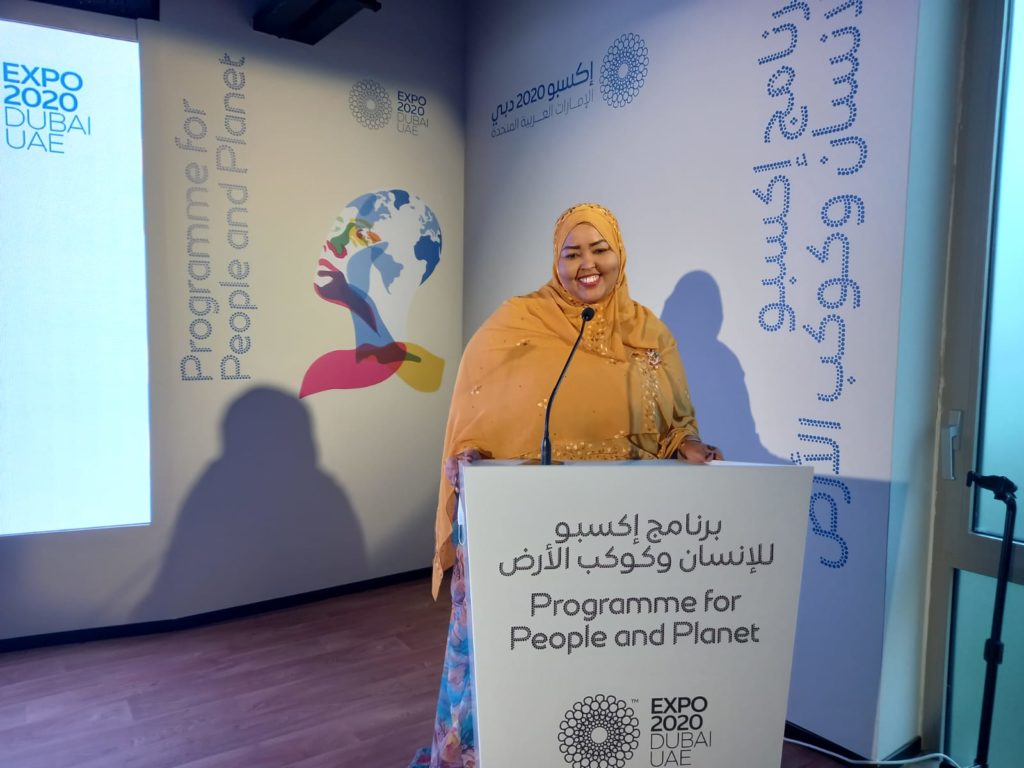Dubai – Agricultural leaders from North African states have a common agenda: More agricultural technologies. In countries like Djibouti, where the agricultural production accounts for the largest share of exports, led in 2020 by items like palm oil, leguminous vegetables, living animals and sheep and goats, Fahima Mohamed Ismail (pictured), head of the women’s cooperative Restoring Hope, explains that it is imperative to expand possibilities.
“Brazil is a leading sugar exporter, and our country is a major buyer of sugar from Brazil. My country is like a desert, it’s very hot, and we’re still ‘emerging.’ This is a good opportunity for us to maybe strike some partnerships in technology. When we talk about farms, we talk about innovation,” Ismail told ANBA.

The farmer participated in Expo 2020 Dubai in a panel focused on the Sahel region, which encompasses the territory that separates the Sahara Desert in the north from the tropical savannahs in the south of the African continent.
The same debate featured Ruanda’s former Agriculture minister Agnes Kalibata, who currently presides the Alliance for a Green Revolution in Africa (AGRA). For Kalibata, partnerships in technology will also be key for advancing production in the continent.
“First of all, from an African perspective, we are part of ICA [International Cooperative Alliance-Africa], which Brazil is part of. We have a strong partnership between African and Latin American countries. Specifically between Brazil and the Sahel region, Brazil has a large expertise that hold a potential for great opportunities, and there’re already institutional partnerships in place between Brazil and the African states. But there’re also value-added technologies and business partnerships where Sahel could advance,” she told ANBA.

Similarities between some Brazilian regions like the Semiarid and the Sahel could also bring the country closer to North African states. “I think it is a huge opportunity to share genetical materials as the climate is very similar between the two regions,” Kalibata said.
Access and financing for women
Other female agricultural leader in the African continent is Elizabeth Nsimadala, president of the Pan Africa Farmers’ Organization (PAFO). The executive was invited for another event in the world exhibition, the panel Women’s World Majlis: From Farmer to Boss Lady: Developing a Gender-Equitable Agricultural Sector, which took place in the Women’s Pavilion.
The PAFO’s president stressed that, although women are a large part of the population and rural workers, they still get little financial and educational incentive. “In North Africa, like any other regions in Africa, there are small famers, especially women, who continue to face challenges like access to financing because many countries limit their access to land,” Nsimadala told ANBA.

It’s still common that women farmers don’t own farms in their own name, with documents listing only the name of their husbands or male relatives. This hinders their access to credit facilities and rights like retirement. Nsimadala points out that the lack of access cuts down the number of women in leading positions, and so the cycle is perpetuated.
Thus, the executive believes it was important to create specific programs during the pandemic. One of them is VALUE4HER, which aims to increase the financial gain for women in agribusiness through the access to the market, expertise and network that tackle the barriers against empowering women in agriculture, Nsimadala said.
Translated by Guilherme Miranda




